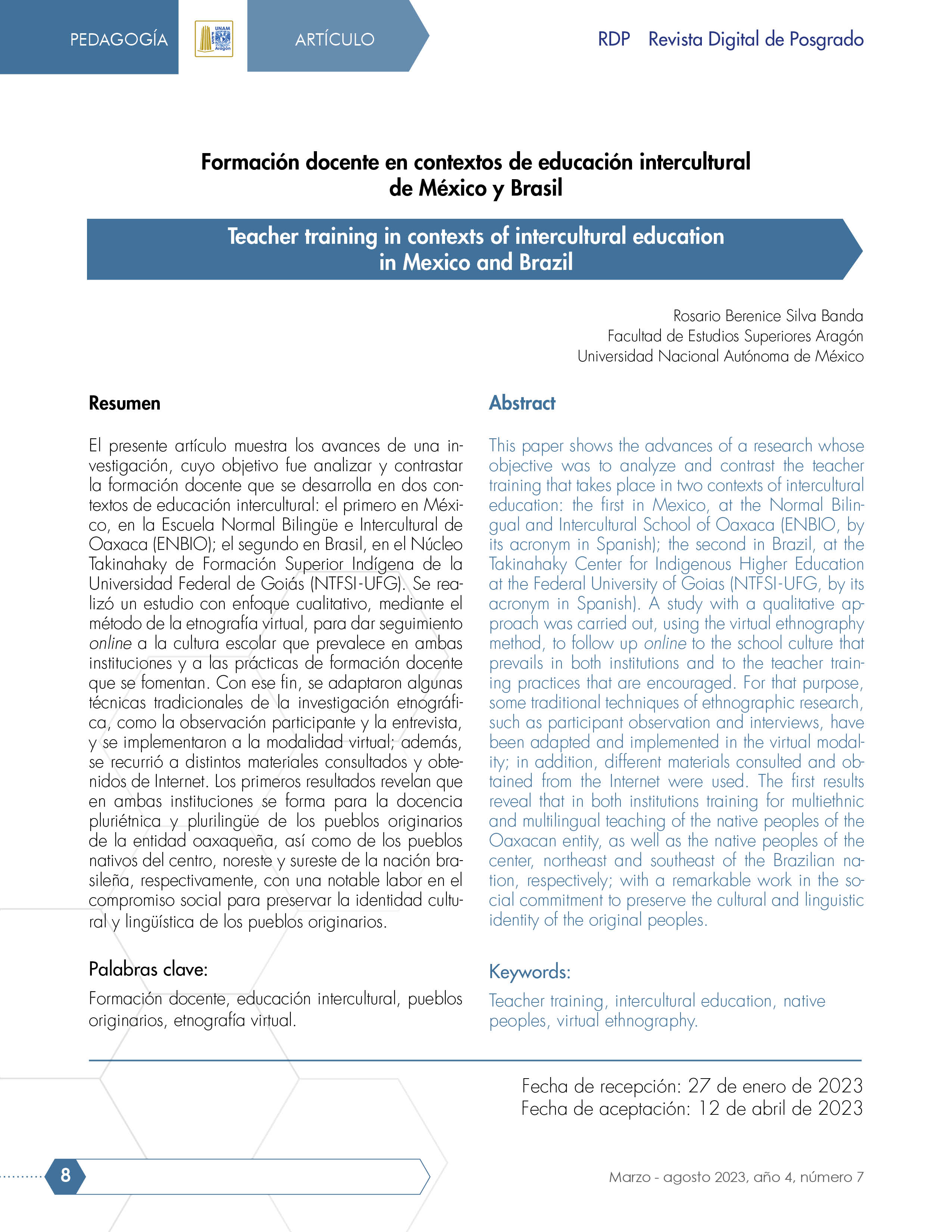Teacher training in contexts of intercultural education in Mexico and Brazil
DOI:
https://doi.org/10.22201/fesa.rdp.2023.7.59Keywords:
Teacher training, intercultural education, native people, virtual ethnography.Abstract
This paper shows the advances of a research whose objective was to analyze and contrast the teacher training that takes place in two contexts of intercultural education: the first in Mexico, at the Normal Bilingual and Intercultural School of Oaxaca (ENBIO, by its acronym in Spanish); the second in Brazil, at the Takinahaky Center for Indigenous Higher Education at the Federal University of Goias (NTFSI - UFG, by its acronym in Spanish). A study with a qualitative approachwas carried out, using the virtual ethnography method, to follow up online to the school culture that prevails in both institutions and to the teacher training practices that are encouraged. For that purpose, some traditional techniques of ethnographic research, such as participant observation and interviews, have been adapted and implemented in the virtual modality; in addition, different materials consulted and obtained from the Internet were used. The first results reveal that in both institutions training for multiethnic and multilingual teaching of the native peoples of the Oaxacan entity, as well as the native peoples of the center, northeast and southeast of the Brazilian nation, respectively; with a remarkable work in the social commitment to preserve the cultural and linguistic identity of the original peoples.

Downloads
Published
How to Cite
Issue
Section
License
Copyright (c) 2023 Universidad Nacional Autónoma de México

This work is licensed under a Creative Commons Attribution-NonCommercial-NoDerivatives 4.0 International License.




